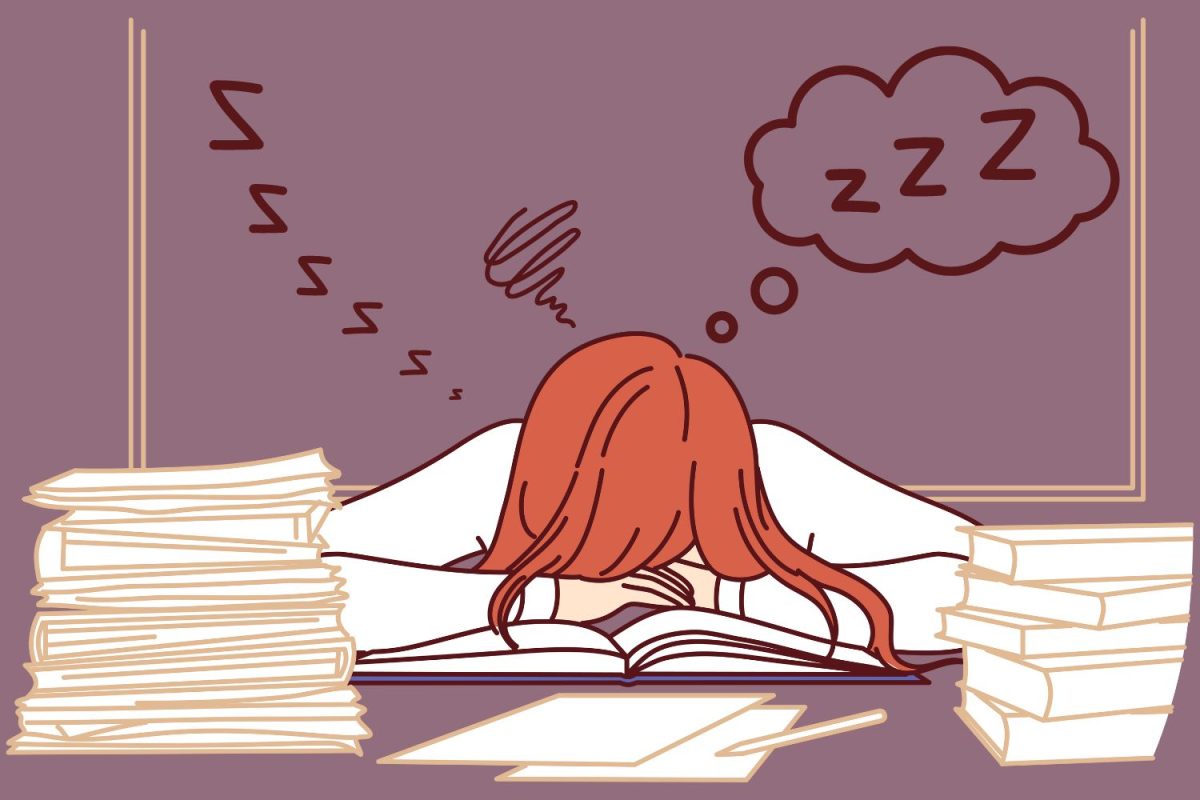Imagine that it is already 11:30 p.m. and you still have half an essay to write, a physics quiz to study for, and a math worksheet due tomorrow. You can feel your eyelids drooping more with each word you type, but you can’t sleep just yet. That’s when you reach for the can of Red Bull.
Consuming caffeine, whatever the source, six hours or less before going to sleep can interfere with sleep patterns. It takes about 8-10 hours for the liver to process about 75 percent of caffeine consumed according to a May Huffington Post article. This means that drinking a Red Bull at 9 p.m. will not be processed until around 6 a.m.
However, many feel that it is their only choice in order to get work done. “If I have work past midnight, I’ll need coffee,” Stefano Longo (’15) said.
While some students find that caffeine does help to get work done, it can come at certain costs. “I think coffee is a great drink, it just can be abused,” Social Studies Teacher Mike McGowan said. McGowan’s concern is that students are skewing their sleep cycles by drinking too much caffeine.
McGowan speaks from experience. “When I was younger, I abused caffeine. Caffeine pills used to be the fad, because we didn’t get enough kick from soft drinks,” he said. Over time, McGowan realized that this habit was having a “negative effect” on him, such as altering his sleep schedule.
He no longer drinks caffeine after 5 p.m. and has given up drinking coffee during school days. McGowan recommends replacing coffee with tea, especially if one is reliant on caffeine to get through the day.
“I’m addicted. I’ll admit it,” Longo said. He usually drinks about three coffee beverages daily. Longo said that without his coffee fix, he often experiences severe headaches, a common symptom of caffeine withdrawal.
Many students have questioned whether this type of dependency is healthy for teenagers. There are certain benefits of caffeine: Increased concentration, and according to a 2013 report in Psychology Today by Raychelle Lohmann, it may even improve memory and ward off Alzheimer’s disease.
On the other hand, too much caffeine can have negative effects, including anxiety, insomnia, and headaches. As stated by Bethany Ramos, a culture researcher, small amounts of coffee are given to children in the mornings in certain cultures to wake them up. This is especially common in Italy and Latin-America. The studies by two pediatrician researchers Steven Lipshultz and Sara Seifert, have shown that limited caffeine will boost the focus of adolescents.
Sodas and energy drinks contain roughly the same amount of caffeine as coffee drinks, but also contain significantly more sugar. After drinking a soda, it is common to experience the effects of caffeine followed by a sugar rush due to a spike in blood sugar levels. “I usually drink about five bottles of Coke per day,” Anna Graham (’16) said. “Ever since freshmen year, if I don’t get my caffeine I feel really tired.” She admitted to sometimes experiencing a sugar crash, falling asleep as early as 7 p.m.
There are many teenagers who simply do not drink caffeine. “I wake myself up by going outside and getting fresh air,” Lucy Webb (’16) said. Webb’s reasoning was that she simply did not like the taste, so she never made a habit of drinking it.







